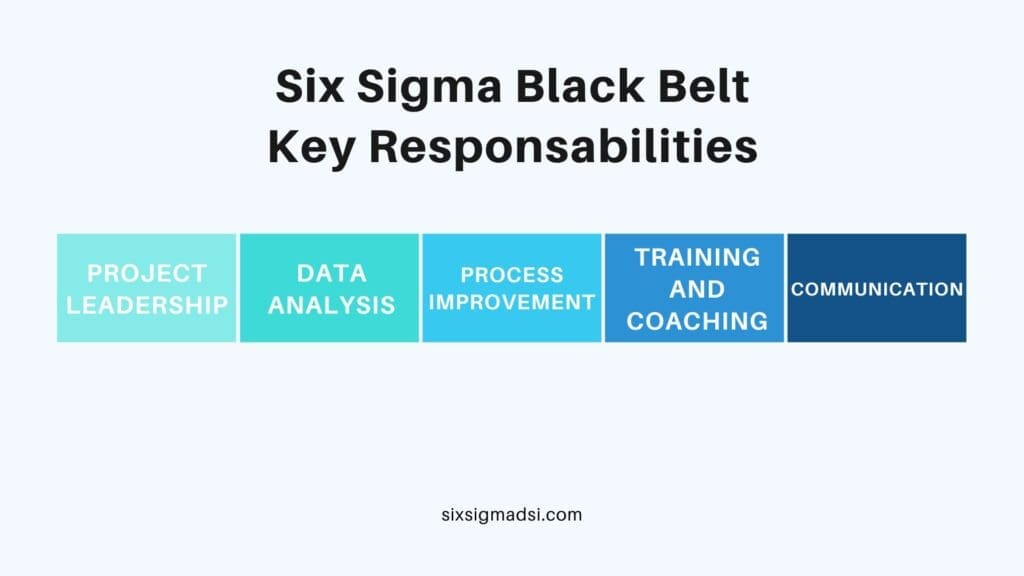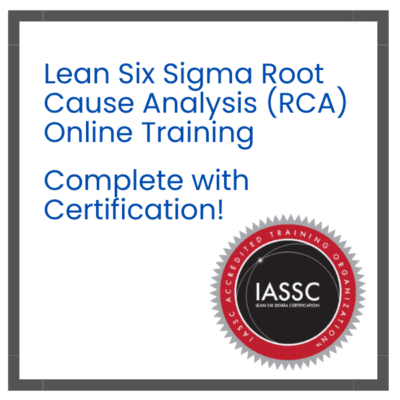Table of contents
Estimated reading time: 4 minutes
What is a Six Sigma Black Belt?
Six Sigma Black Belt is a professional designation and role within the Six Sigma methodology, which is a set of techniques and tools for process improvement. The term “Six Sigma” refers to a statistical concept that measures how far a given process deviates from perfection. The goal of Six Sigma is to improve processes and reduce defects to a level that is statistically equivalent to achieving only 3.4 defects per million opportunities.

A Six Sigma Black Belt is an individual who has been trained in the Six Sigma methodology and tools and is responsible for leading and managing improvement projects within an organization. The role of a Black Belt is typically a full-time position and individuals holding this title play a crucial role in driving process improvement initiatives.

Key responsibilities include:
- Project Leadership: Leading and managing Six Sigma projects from initiation to completion. This involves defining project goals, scope, and objectives.
- Data Analysis: Using statistical tools and techniques to analyze data and identify areas for improvement. This includes understanding and interpreting statistical measures to make informed decisions.
- Process Improvement: Applying Six Sigma tools and methodologies to identify and eliminate defects or inefficiencies in processes. This involves working with cross-functional teams to implement improvements.
- Training and Coaching: Providing training and coaching to team members and employees involved in Six Sigma projects. Black Belts often act as mentors to Green Belts (individuals with a lower level of Six Sigma training) and other team members.
- Communication: Effectively communicating project progress, results, and recommendations to both technical and non-technical stakeholders. Black Belts need strong communication skills to ensure that their recommendations are understood and accepted by the organization.
To become an SSBB, individuals typically undergo extensive training and certification. The training covers statistical methods, project management, and the use of Six Sigma tools. Certification levels can vary, but it often involves completing a project and passing an examination.
In addition to Black Belts, there are other roles within the Six Sigma framework, including Yellow Belts (basic understanding of Six Sigma concepts), Green Belts (intermediate level of training and involvement in projects), and Master Black Belts (highly experienced individuals who provide leadership and guidance to Black Belts and Green Belts).
Six Sigma Black Belt is highly recommended for professionals who are looking to solve quality problems, participate in quality improvement projects, as well as business process owners and functional managers. Applying the Six Sigma Black Belt principles and CSSBB methodologies will improve your business’s productivity and efficiency.
Becoming a Certified Six Sigma Black Belt
Achieving the CSSBB designation involves a structured and rigorous process:
- Education:
- Candidates undergo comprehensive training covering statistical methods, project management, and Six Sigma tools.
- Training is typically provided by accredited institutions or organizations.
- Experience:
- Candidates are required to demonstrate practical application of Six Sigma principles by leading and completing projects.
- The level of required experience may vary, but it is a critical component of certification.
- Examination:
- To attain CSSBB certification, candidates must pass a rigorous examination that evaluates their understanding of Six Sigma concepts and their ability to apply them in real-world scenarios.
In a world where efficiency, quality, and customer satisfaction are paramount, the role of a Certified Six Sigma Black Belt is indispensable. These professionals drive organizational excellence by leading teams, analyzing data, and implementing improvements that have a lasting impact. The CSSBB certification not only signifies expertise but a commitment to continuous improvement, making it a valuable asset for individuals and organizations alike. As businesses navigate the complexities of today’s global landscape, the CSSBB stands as a beacon of excellence, guiding organizations toward higher levels of performance and success.



















